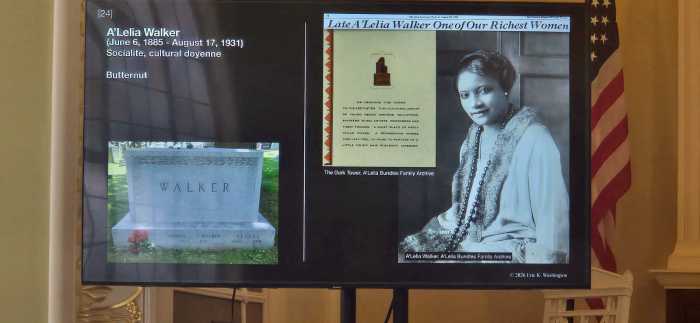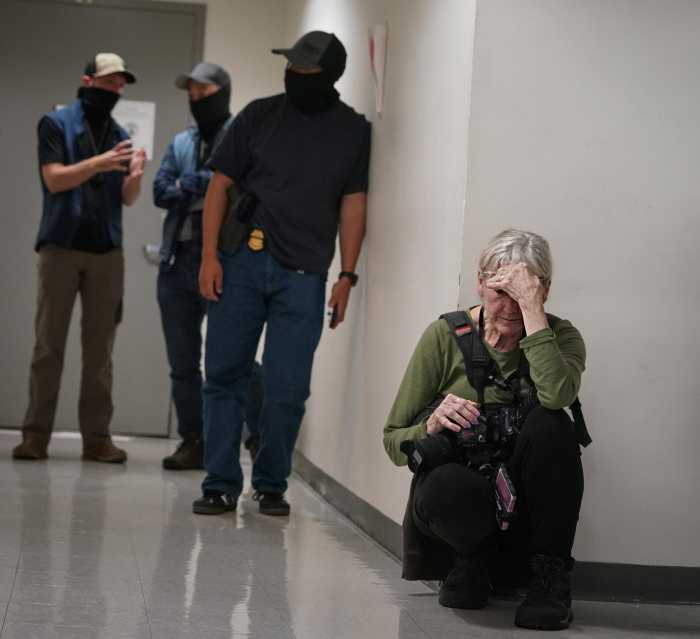Where there’s smoke, there are fiery residents.
The clouds of exhaust from 400 school buses fired up locals at a Mill Basin community meeting on Nov. 17 held to discuss the environmental impact of depots operating on Strickland Avenue.
Representatives from the Department of Environmental Protection attended but offered no solutions, leading residents to claim the city isn’t doing enough to protect them. Locals are even lawyering up in the hope of pushing the buses out of their neighborhood.
“Where is the city protecting us? Where is the DEP? Nobody’s helping us. Nobody’s protecting us,” said Tracy Arefiev, who lives near one of the depots. “This is why we’re hiring an attorney. We’re going to find out if someone’s sidestepping the law.”
Residents complain that the bus depot lots were rezoned for residential use several years ago, but Councilman Alan Maisel (D–Marine Park), explained that a grandfather clause allowed the depots to continue operating legally. He said that means that until the owner sells the property, the rezoning does not go into effect.
“The legality of what they’re doing is absolute — they have a right to be there,” he said.
Maisel said the only way to tackle the bus problem — which intensified after the Department of Transportation installed a traffic island on Strickland Avenue that forces buses to turn down a once-quiet residential road — is through ticketing buses that are caught illegally idling.
But when locals tried to offer evidence — pictures, videos, and anecdotes — of the buses’ illegally idling, the Department of Environmental Protection representatives said they had to personally catch the drivers in the act to issue summonses.
Residents said they worry that the department’s inspectors won’t see the illegal idling since it starts at 5:30 am, well before a typical employee’s workday begins. And there is another caveat — even if the department sees buses idling for more than the allotted three-minute timeframe, it cannot issue the $350 ticket if buses move at all during the countdown.
One local said this loophole is the reason dozens of neighborhood kids are battling health problems he said are related to the buses’ massive fuel emissions.
“What about the kids?” said Jeff Cohen, who added that numerous children have chronic coughs.
Adults are having health problems as well, said Arefiev, who now uses an inhaler regularly to treat her asthma. She said she hopes a lawyer can help enforce the waterfront’s rezoning so kids and adults can all breathe a sigh of relief.
“You have this diesel exhaust surrounding a residential community,” she said. “The local politicians spent about 15 years trying to get the waterfront rezoned — for what? For what?”






















